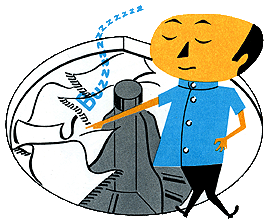Tough question, though I think manufacturers might've "encouraged" EnergyStar because there are still people who think they can wash dishes with less water (and better than) any modern or vintage dishwasher. The more the usage is reduced: The more of these "greenies" they are likely to attract. More $ for the company and government too. Its a Win for them and a lose for us.
Remember dishwashers were probably more frugal in the beginning: Mike's GE Electric Sinks I think would rank much better in usage than the machines coming through the 60s, 70s and 80s (Who used up to 18 gallons to wash dishes), before dropping back again through the 90's and into the 2000's.
Depending on who you are, your hand-washing may/may not use as much water (Although proper hand-washing should be using much more water than a dishwasher: Rinse - Wash - Rinse and ensure plenty of water changes in your sink to ensure CLEAN dishes, not scummy, washed in black water dishes).
We must also observe machines from elsewhere in the world, like Europe where dishwashers (once they really penetrated the market) were already using half the water of their American counterparts. Obviously, the Americans used more water since it was cheaper and because their dishwashers had no filter, a self-cleaning filter combined with food disposals to make the dishwasher essentially maintenance free, whereas most EU machines had manual-clean filters, no disposal and were probably expected the be quiet.
I know of Asko machines from the early 1990's that used about 30L of water for two washes and three rinses and had a self-clean filter too, so obviously low water was doable, but some manufacturers cheaped out on their consumers and persisted with 20 year old pump/distribution systems (GE's dreaded "Tower-Wash" machines) - so money stopped development until the Government realised there was much to be improved upon. Maybe this explains the draconian rules/regulations imposed lately then...

 (Quiet Please, There´s a Lady on Stage)
(Quiet Please, There´s a Lady on Stage) 

 Comes to the Rescue!
Comes to the Rescue!